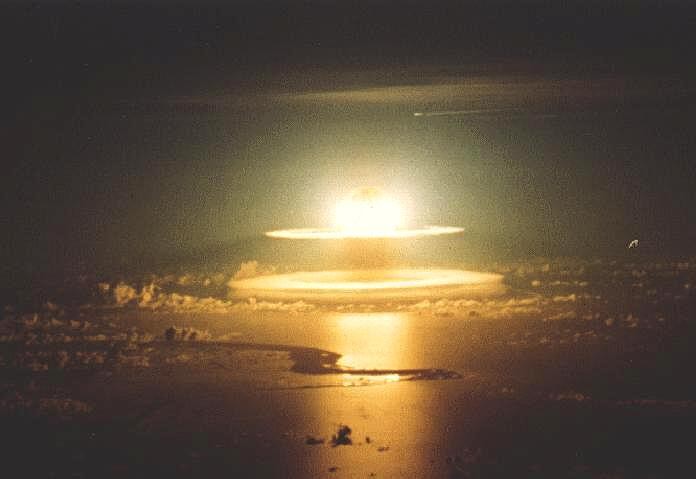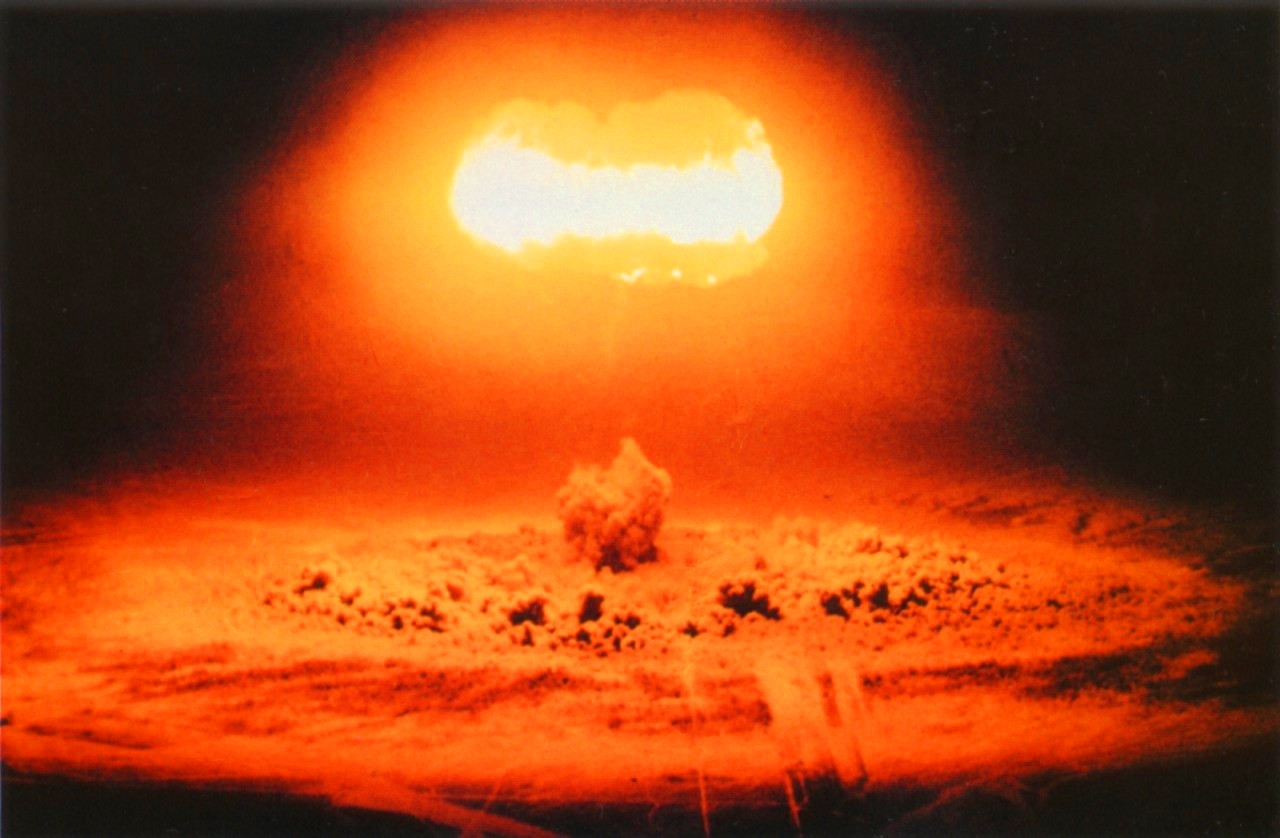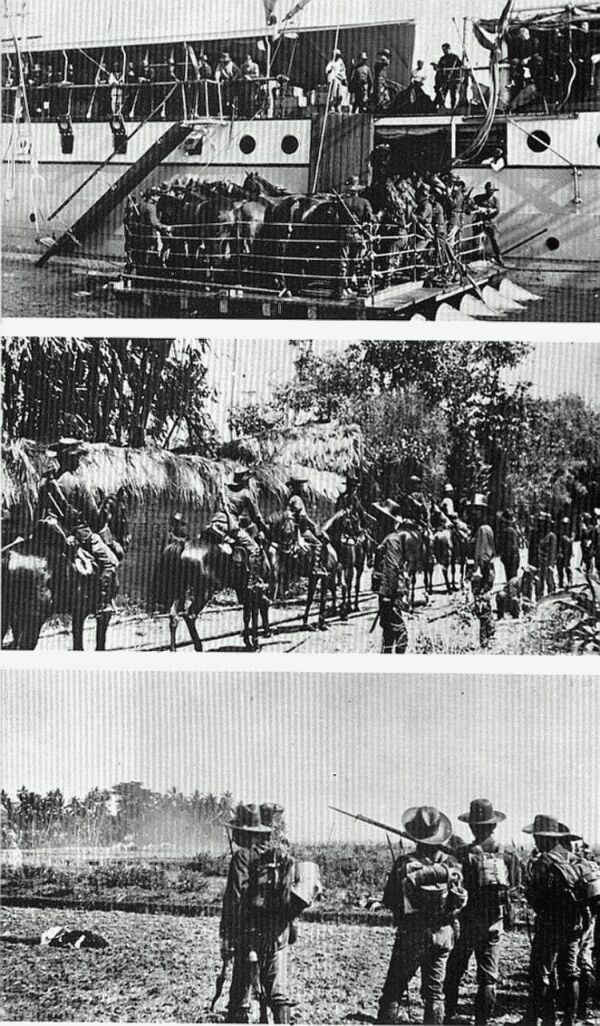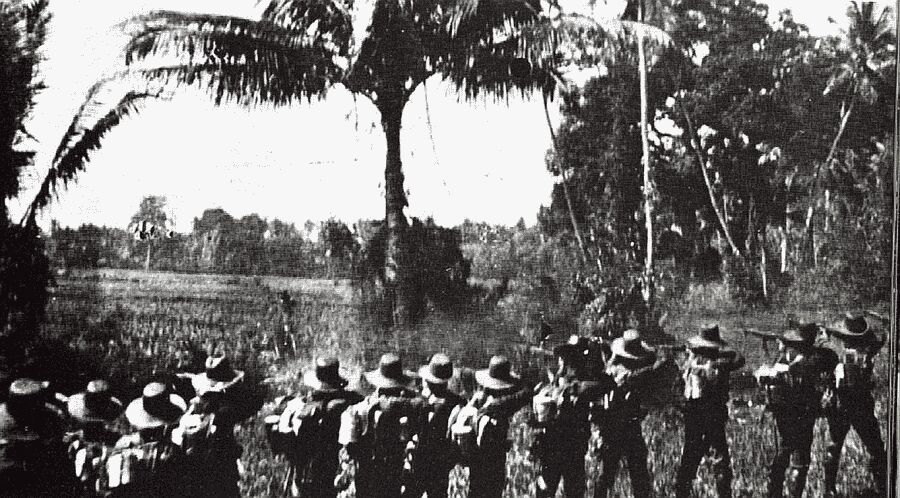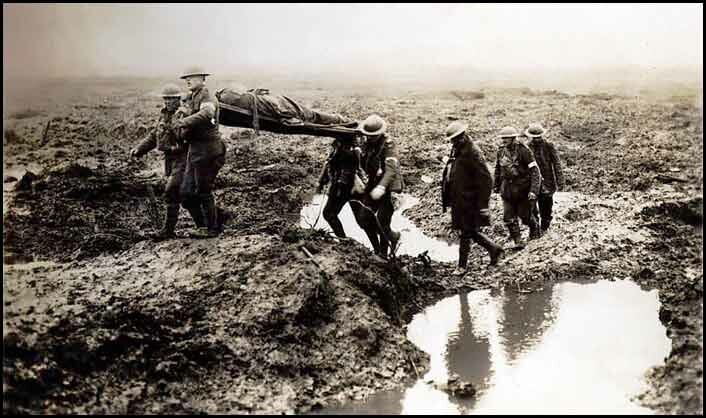Post photographs.
- Thread starter 2-0-Sixx
- Start date
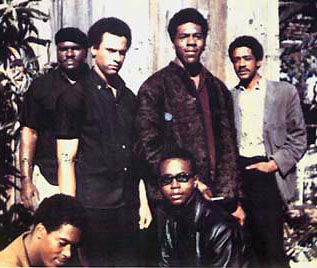
"The Six Original 'Black Panther Party for Self Defense' Members, Nov. 1966."

The office of the New Haven chapter of the Black Panther Party is shown April 30, 1970, in New Haven, Conn.

Two boys are shown on May 1, 1970, at a rally in support of Black Panther Party Chairman Bobby Seale and other Panthers in New Haven, Conn.

Civil War in Russia
A young Bolshevik volunteer, grenades in his bandolier. This kind of action rifle would see service in several wars to come.

The Long March
In 1934 the Communist leader Mao Tse-Tung retreated with100,000 of his followers from south to north China, a distance of 5000 miles. October 1935, some 30,000 survived.

War in Vietnam
Soldiers of the National Liberation Front (Vietcong) firing their heavy machine gun at attacking American aircraft, April 1969.
While the Portuguese were the first Europeans to see South Africa, they did not choose to colonise it, and instead the Dutch set up a supply depot on the Cape of Good Hope. This depot rapidly developed into the Cape Colony. The British seized the Cape Colony from the Dutch in the end of the 18th century, and the Cape Colony became a British colony. The ever-expanding number of European settlers prompted fights with the natives over the rights to land and farming, which caused numerous fatalities on both sides. Hostilities also emerged between the Dutch and the British, and many Dutch people trekked into the central Highveld in order to establish their own colonies. The Dutch, by then known as the Boers, and the British went to war twice in the Anglo-Boer Wars, which ended in the defeat of the Boers and their independent republics.
The British eventually had over 400,000 men in South Africa. The Boers, at their peak had 52,000, using boys as young as 9. In addition, the Boers were mostly untrained farmers, fighting what was perhaps the greatest power in the world. So the match was uneven from the start. However the Boers were fighting on their home ground and used unconventional guerilla tactics to good advantage.

Photograph showing casualties in an early battle of the Boer War, 1900

Boer Commandos

The concentration camps in which Britain killed 27 000 Boer women and children(24000) during the Second War of Independence (1899 - 1902) today still have far-reaching effects on the existence of the Boerevolk.

A Boer child in a concentration camp.
The British eventually had over 400,000 men in South Africa. The Boers, at their peak had 52,000, using boys as young as 9. In addition, the Boers were mostly untrained farmers, fighting what was perhaps the greatest power in the world. So the match was uneven from the start. However the Boers were fighting on their home ground and used unconventional guerilla tactics to good advantage.

Photograph showing casualties in an early battle of the Boer War, 1900

Boer Commandos

The concentration camps in which Britain killed 27 000 Boer women and children(24000) during the Second War of Independence (1899 - 1902) today still have far-reaching effects on the existence of the Boerevolk.

A Boer child in a concentration camp.
Under the command of Kitchener, Milner and Roberts, more than homesteads and farms belonging to Boer people were plundered and burned down. Animals belonging to the Boers were killed in the cruelest ways possible while the women, whose men were on the battlefield, had to watch helplessly.

Killing Sheep

Leaving the sheep rotten

By October 1900 there were already 58 883 people in concentration camps in Transvaal and 45 306 in the Free State.

The outbreak of disease and epidemics in the camps were further promoted by, inter alia, the lack of sanitary conveniences. Bloemfontein camp had only 13 toilets for more than 3 500 people. Aliwal North camp had one toilet for every 170 people.
A British physician, Dr Henry Becker, writes: "First, they chose an ill-suited site for the camp. Then they supplied so little water that the people could neither wash themselves nor their clothes. Furthermore, they made no provision for sufficient waste removal. And lastly, they did not provide enough toilets for the overpopulation they had crammed into the camps."
A report on a Ladies' Committee's visit to Bloemfontein camp stated: "They saw how the women tried to wash clothes in small puddles of water and sometimes had to use the water more than once."

Killing Sheep

Leaving the sheep rotten

By October 1900 there were already 58 883 people in concentration camps in Transvaal and 45 306 in the Free State.

The outbreak of disease and epidemics in the camps were further promoted by, inter alia, the lack of sanitary conveniences. Bloemfontein camp had only 13 toilets for more than 3 500 people. Aliwal North camp had one toilet for every 170 people.
A British physician, Dr Henry Becker, writes: "First, they chose an ill-suited site for the camp. Then they supplied so little water that the people could neither wash themselves nor their clothes. Furthermore, they made no provision for sufficient waste removal. And lastly, they did not provide enough toilets for the overpopulation they had crammed into the camps."
A report on a Ladies' Committee's visit to Bloemfontein camp stated: "They saw how the women tried to wash clothes in small puddles of water and sometimes had to use the water more than once."

Construction work began on the Boer concentration camp at East London in January 1902. The Camp was later bought by the East London Municipality as a location for the Indian Community but, when the Indians failed to take up residence there, it was transformed into a location for Poor Whites.

The concentration camp at Krugersdorp. Women can be seen walking up a road
through the centre of the camp. Such camps were an obvious and controversial
result of the British strategy of attrition.

Frontal assaults against rocky outcrops like
this one in Cape Colony, 15 miles south of
Orange River, led to horrific casualty rates
in the first stages of the Anglo-Boer War.

Boers
@ CB Great looking out with those last pics
I can tell you that Boer means farmer in english and boers is multiple so that means farmers.. all dutch people fighting that war were farmers.. and people in south africa still speak the dutch language from that time.. it's real different then the dutch we speak here but you really can hear the simullarity (sp?)
Where you'd get the info? I'd like to read up
I can tell you that Boer means farmer in english and boers is multiple so that means farmers.. all dutch people fighting that war were farmers.. and people in south africa still speak the dutch language from that time.. it's real different then the dutch we speak here but you really can hear the simullarity (sp?)
Where you'd get the info? I'd like to read up













